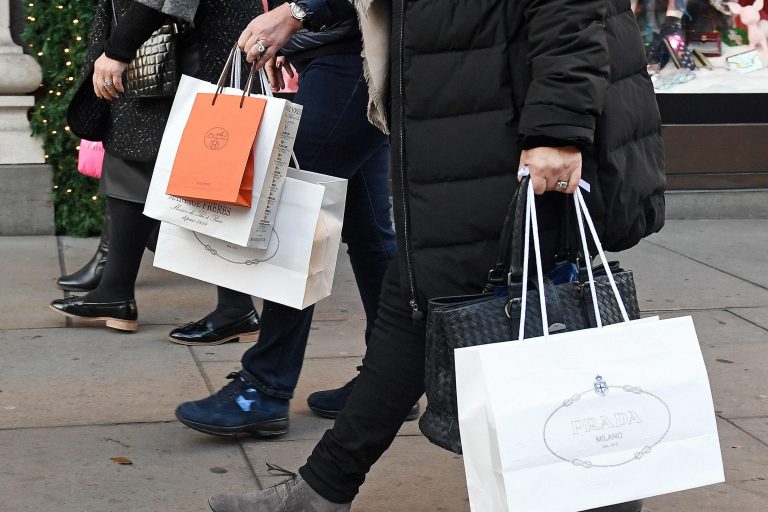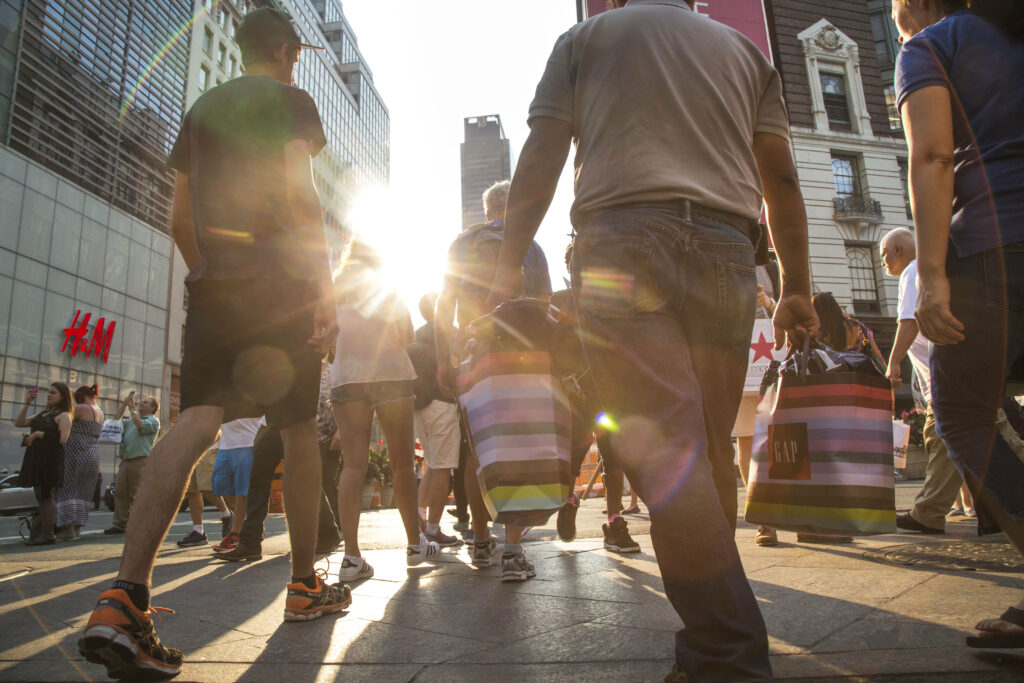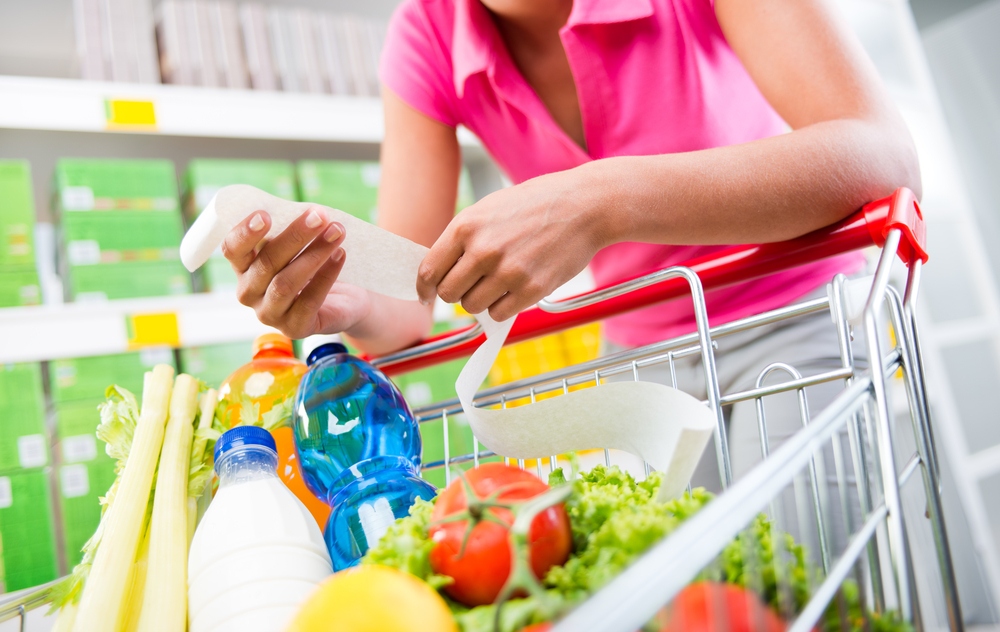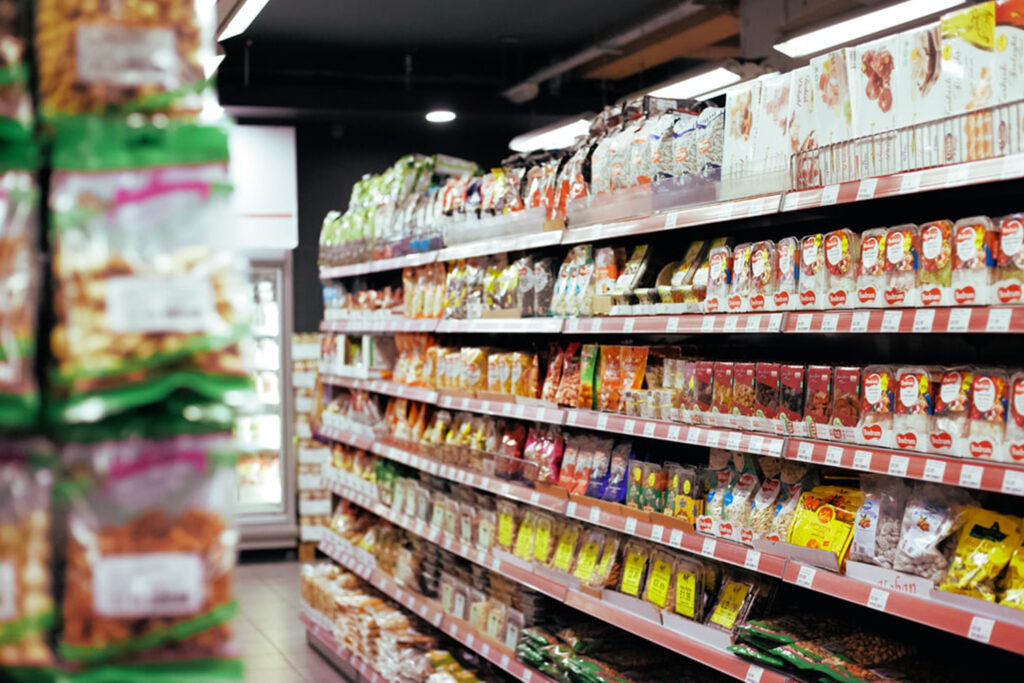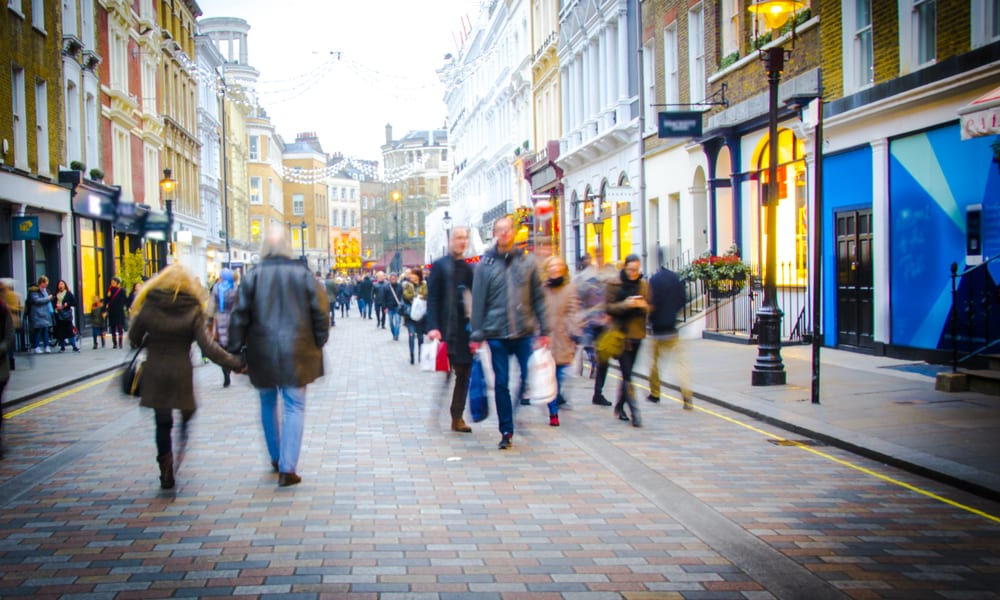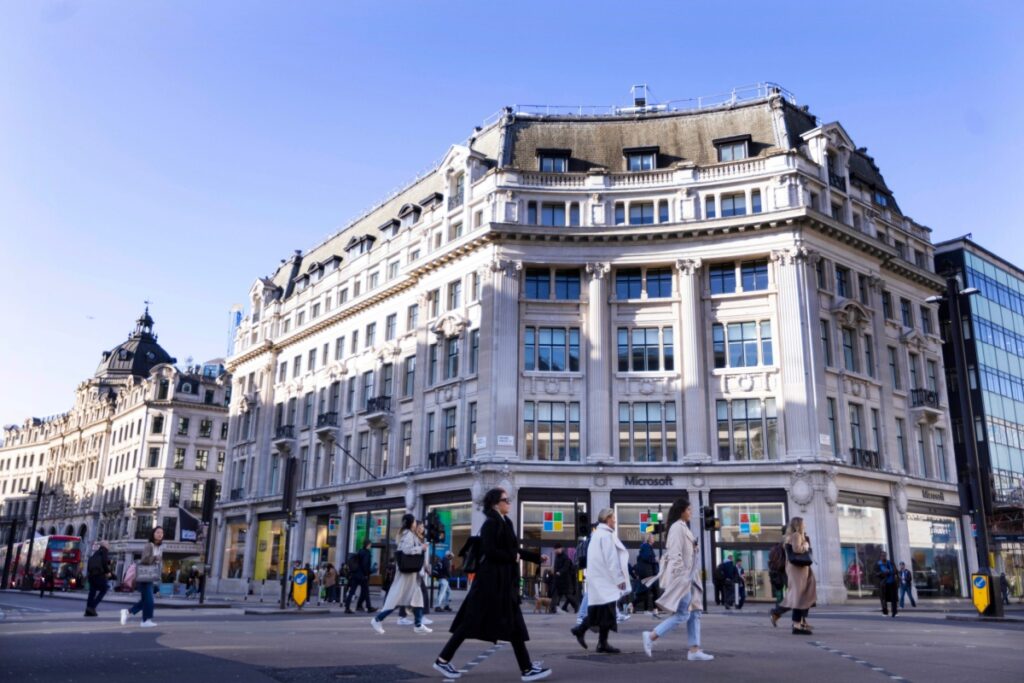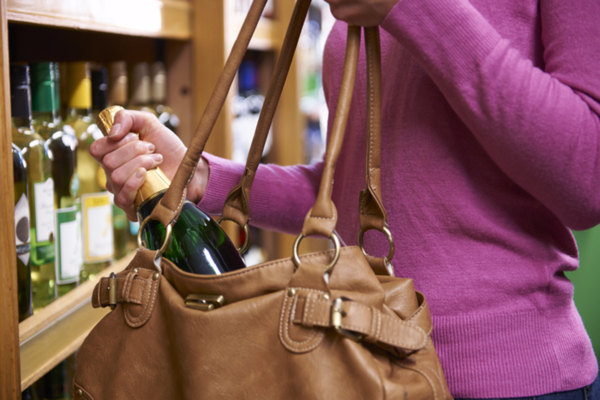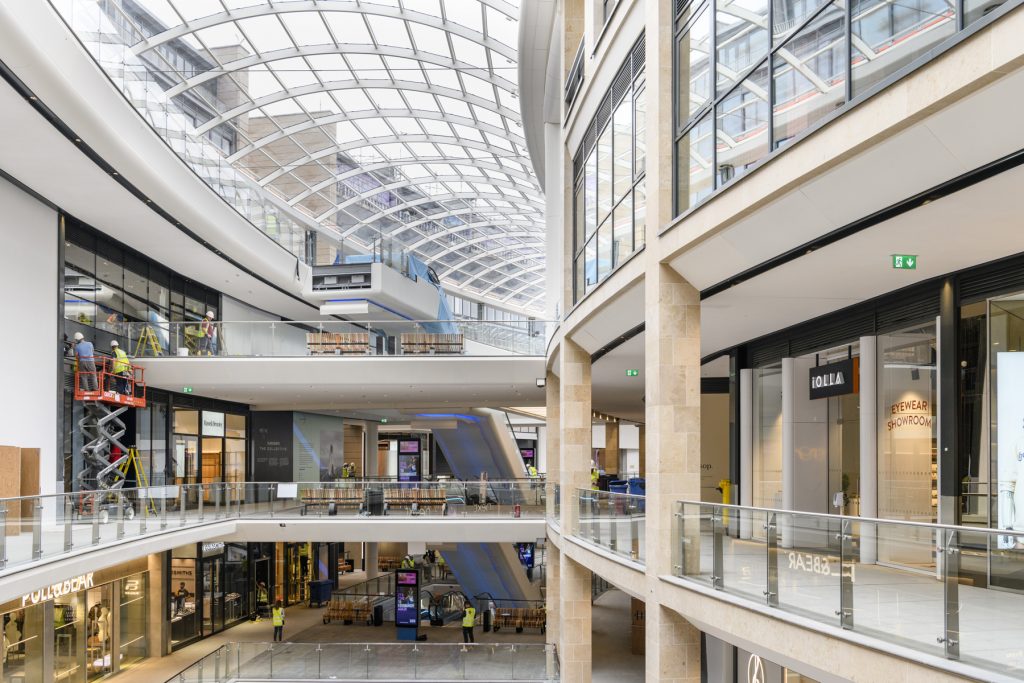// Retail sales growth slowed in November due to government restrictions
// Online sales increased as Brits shifted to digital platforms
Retail sales growth has slowed down in November, as tighter government restrictions left consumers to shift online.
Over the three months to November, in-store sales of non-food items declined 18.6 per cent on a total basis and 10.8 per cent on a like-for-like basis.
For November, the like-for-like excluding temporarily closed stores remained in decline, according to the BRC-KPMG retail sales monitor.
READ MORE: Shopper footfall down despite images of post-lockdown crowds
This is better than the 12-month total average decline of 21.7%.
Sales increased by 0.9 per cent in November, against a decline of 0.9 per cent in November 2019.
Over the three months to November, food sales increased 6.4 per cent on a like-for-like basis and 7.0 per cent on a total basis. This is higher than the 12-month total average growth of 4.8 per cent.
During the period, non-food retail sales increased by 6.4 per cent on a like-for-like basis and 1.3 per cent on a total basis. This is above the 12-month total average decline of 4.5 per cent.
Online sales increased by 47.2 per cent in November, against a growth of 0.3 per cent in November 2019.
“November saw the brakes put on the sales growth that had been seen over the previous three months,” BRC chief executive Helen Dickinson said.
“In-store non-food sales saw a significant decline as a result of the lockdown in England, however some retailers were able offset a proportion of lost sales through greater online and click-and-collect sales, ensuring they could still serve their customers.
“Extended discount periods helped spread demand and offered customers great deals on gifts including the latest gaming consoles, other electronics and home accessories.
“However, the disparity between online and in-store non-food sales widened, with the highest online penetration rate since May.
“Non-food stores once again experienced double-digit decline as tighter restrictions were bought in across England.
“Despite sales remaining positive overall, parts of the industry continue to suffer. After two periods of prolonged closure, and continued low footfall in towns and city centres, many retailers face the stark reality of further job losses and store closures as a result of mounting rent bills and a return to full business rates liability from next April.
“Government should extend the moratorium on debt enforcement and target those retailers who have been hardest hit by the pandemic with further business rates relief beyond April 2021.”
KPMG UK head of retail Paul Martin said: “Despite the on-going unprecedented environment, UK retail fought hard during November to win growth on last year.
“It was a tale of two channels however, as lockdown resulted in a dismal performance for high street retailers, whilst online sales rose by impressive double figures across most categories.
“The gap between winners and losers continues with home focused items such as technology and household appliances putting in a very strong performance, whilst fashion sales fell away at a significant level.
“The evolution of Black Friday from a day to now spanning multiple weeks, has further distorted trading patterns and will have likely brought Christmas purchases forward.
“Despite this, high street retailers will still be hoping that consumers will be pounding the pavements in the coming weeks as they battle hard to make up for lost ground in this crucial time.
”The arrival of a vaccine programme will help to boost consumer confidence, but conditions are likely to remain challenging for the immediate future and retailers will need to fight hard in the January sales for every penny in consumers’ pockets.”
Click here to sign up to Retail Gazette’s free daily email newsletter

